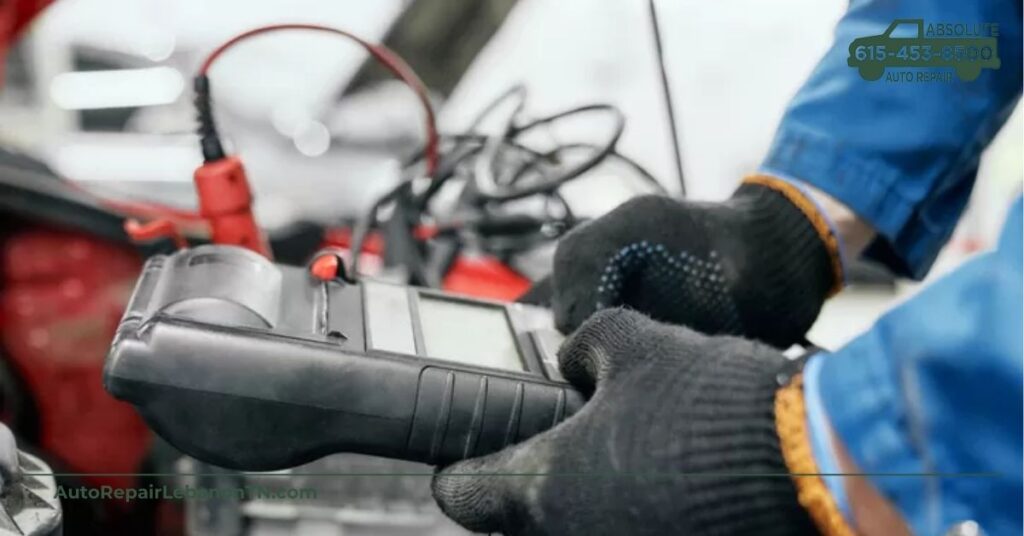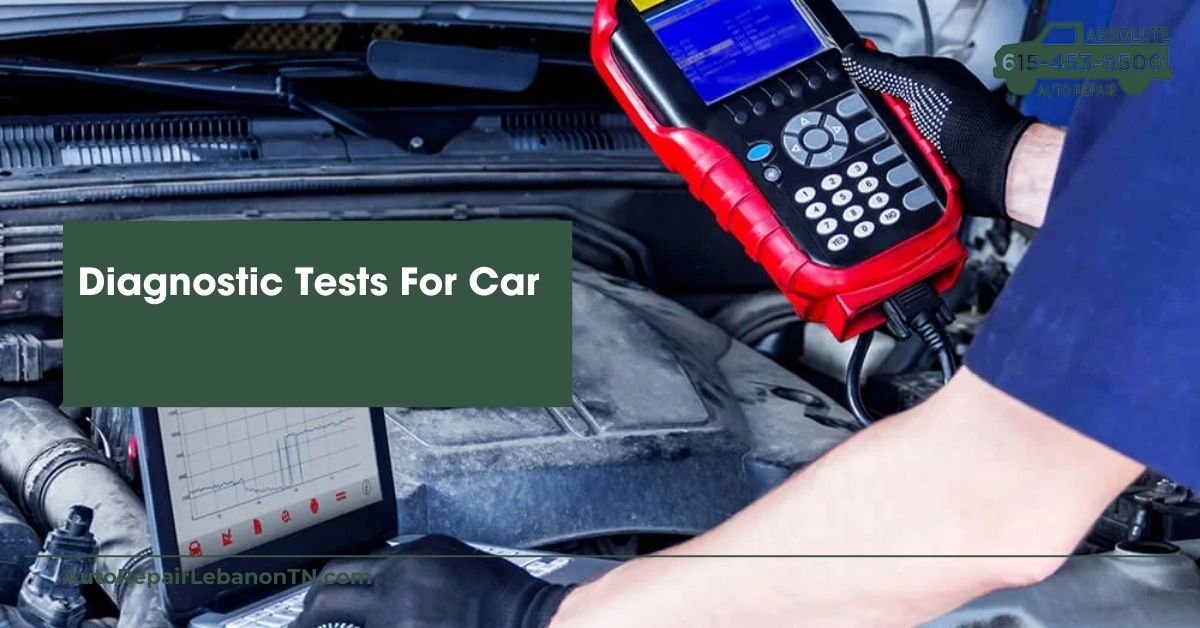When your car starts acting up, it can feel like a mystery waiting to be solved. A diagnostic test is your key to unlocking the secrets behind those troubling warning lights and unusual sounds. By pinpointing issues early, you can save money and prevent bigger problems down the road.
Imagine cruising down the highway with peace of mind, knowing your vehicle is in top shape. With modern diagnostic tools, you’ll get clear insights into your car’s health, allowing you to make informed decisions about repairs and maintenance. Don’t let uncertainty drive your day; take control and ensure your ride is as smooth as it should be.
Overview of Diagnostic Tests for Cars

Diagnostic tests for cars serve as essential tools to assess vehicle health. These tests use advanced technology to identify underlying issues, often before symptoms become apparent. Mechanics employ onboard diagnostics (OBD) systems to scan for error codes that indicate malfunctions. Each code pinpoints a exact problem, helping you understand your vehicle’s condition.
Exact tests like the emissions test evaluate a car’s environmental impact. This process measures pollutants and ensures compliance with regulations. Regular assessments can reduce harmful emissions and contribute to a greener environment. Also, performing diagnostic tests can enhance fuel efficiency, saving you money at the pump.
You may encounter various types of diagnostic tests, including visual inspections and electronic assessments. Visual inspections check for leaks, worn belts, or damaged hoses. Electronic assessments, on the other hand, use diagnostic scanners to interpret data from your vehicle’s systems. Each method plays a vital role in maintaining overall performance.
Frequency of conducting diagnostic tests varies based on usage and vehicle age. Recommendations suggest testing every six months or before long trips. Regular checks provide peace of mind and help prevent unexpected breakdowns. Following these guidelines ensures your vehicle operates smoothly and reliably.
Importance of Regular Diagnostic Testing
Regular diagnostic testing is essential for maintaining your vehicle’s health and performance. It enables you to stay ahead of potential problems, ensuring a safer driving experience.
Preventive Maintenance
Preventive maintenance benefits greatly from regular diagnostic testing. With precise checks on your vehicle’s systems, you can catch minor issues before they escalate. Taking action early often prevents major repairs and extends the lifespan of critical components, like brakes or the engine. Ensure that your car undergoes testing every six months or before long trips for optimal performance.
Cost-Effectiveness
Cost-effectiveness is a important advantage of consistent diagnostic testing. By identifying issues early, you avoid more expensive repairs later on. Neglecting to monitor your vehicle can lead to severe malfunctions, which often result in higher repair bills. Regular checks can save you money in the long run, allowing you to invest in necessary upgrades rather than costly emergency fixes.
Common Types of Diagnostic Tests

You may encounter various types of diagnostic tests for cars, each serving a exact purpose. Both basic and advanced options offer unique insights into vehicle performance and health.
OBD-II Scanners
An OBD-II scanner connects to your car’s onboard diagnostics port to extract crucial information. It reads and identifies error codes flagged by the vehicle. Many drivers prefer this tool because of its ability to provide instant feedback on system issues. Advanced models can monitor your car’s systems in real-time, allowing you to catch problems before they escalate. These scanners are available in various price ranges, providing options whether you’re looking for simple functionality or more comprehensive monitoring capabilities.
Emission Testing
Emission testing evaluates your vehicle’s environmental impact. This test checks exhaust emissions to ensure compliance with regulatory standards. Depending on your location, emissions tests may be required annually or during vehicle registration. The results of this test can reveal issues that affect fuel efficiency and overall vehicle performance. Completing an emission test not only supports a cleaner environment, but it can also enhance your car’s efficiency, saving you money on fuel in the long run.
Key Benefits of Using Diagnostic Tests

Diagnostic tests offer important advantages for vehicle owners, improving performance and safety. These tools help you identify problems early, saving you both time and money.
Enhanced Vehicle Performance
Diagnostic tests maintain various systems in optimal condition. Engines, transmissions, and electronic systems all benefit from regular assessments, ensuring smooth and efficient operation. Your car can retain the ‘new-car feel’ through consistent diagnostic testing. Adjustments made during computer diagnostics fine-tune your vehicle’s performance. Optimized fuel efficiency and power output lead to smoother acceleration and improved fuel economy, eventually improving your driving experience.
Increased Safety
Regular diagnostic testing plays a crucial role in maintaining safety on the road. Small issues detected early prevent major malfunctions that could lead to accidents. Routine assessments allow you to address potential hazards swiftly. Keeping brakes and other critical components in check enhances your overall safety while driving. Trusting diagnostic tools ensures your vehicle remains reliable and safe for daily use.
How to Choose the Right Diagnostic Test

Selecting the right diagnostic test for your car involves knowing the available options and considering various crucial factors. Understanding these elements ensures you make an well-informed choice customized to your vehicle’s needs.
Factors to Consider
Compatibility stands as the first priority. Confirm that the diagnostic tool aligns with your car’s make, model, and year. Specifications listed on the tool help you avoid future issues.
Essential features matter significantly. Determine what tasks you expect the tool to perform. Basic tools suffice for reading and clearing error codes. Advanced diagnostic devices cater to more complex requirements, such as live data monitoring and system tests for ABS and SRS.
Cost remains an important consideration. Basic scans often come at little or no expense. Advanced scans, while pricier, offer detailed insights that may save money on repairs in the long run.
Reliability is another crucial element. Choose tools from reputable manufacturers with solid reviews. Researching user experiences provides additional confidence in your selection.
Recommended Tools and Equipment
Basic scan tools serve as a good starting point. They typically read trouble codes and reset systems. Many shops offer them for free or at a low cost, making them accessible for quick diagnostics.
Advanced scan tools use specialized equipment. These devices deliver in-depth analysis, including live data and comprehensive system evaluations. Brands like BlueDriver or Autel offer user-friendly interfaces that simplify diagnostics.
Diagnostic apps connect to your smartphone, providing flexibility and convenience. Tools compatible with OBD-II systems allow easy monitoring of your vehicle’s data in real time. Investigate different app options to find one that meets your exact requirements.
Overall, selecting the correct diagnostic test involves assessing compatibility, features, cost, and reliability. Gathering and evaluating this information ensures you choose a suitable tool for maintaining your car’s health.
Conclusion
Regular diagnostic tests are essential for keeping your car in top shape. By identifying issues early you not only save money but also ensure a safer driving experience. Investing in the right diagnostic tools can provide you with valuable insights into your vehicle’s health.
Whether you’re using basic scan tools or advanced systems for real-time monitoring it’s crucial to stay proactive. Consistent checks can help you avoid major repairs and extend the lifespan of vital components. Remember to choose diagnostic tests that are compatible with your car’s make and model for the best results. Prioritizing vehicle maintenance through diagnostic testing is a smart move for any car owner.
Frequently Asked Questions
What are diagnostic tests for cars?
Diagnostic tests for cars are assessments that help identify potential issues within a vehicle’s systems. Using advanced technology, these tests analyze components electronically to detect problems early, saving time and money on repairs.
Why are diagnostic tests important?
They are essential for maintaining vehicle health and performance. By catching minor issues early, owners can prevent more significant problems, ensuring safer driving and prolonging the lifespan of crucial components.
How often should I conduct a diagnostic test?
It’s recommended to perform a diagnostic test every six months or before taking long trips. Regular testing helps maintain optimal performance and safety.
What is an OBD-II scanner?
An OBD-II scanner is a diagnostic tool that connects to your vehicle’s onboard diagnostics port. It extracts important information and error codes, providing instant feedback on system issues.
How do diagnostic tests improve vehicle performance?
These tests enhance vehicle performance by ensuring that engines, transmissions, and electronic systems are operating efficiently. Early detection of issues helps maintain smooth operation and improves the overall driving experience.
What types of diagnostic tests are common?
Common types of diagnostic tests include OBD-II scans, visual inspections, and emissions tests. Each type provides insights into different aspects of a vehicle’s health and compliance with environmental standards.
Can diagnostic tests save me money?
Yes, regular diagnostic tests can save money by identifying issues early before they become major problems, which often require costly repairs. Preventive maintenance is a wise investment for car owners.
How do I choose the right diagnostic test for my car?
When selecting a diagnostic test, consider compatibility with your car’s make, model, and year. Evaluate features like error code reading capabilities and cost to ensure it meets your needs.
What is the role of emissions testing?
Emissions testing evaluates a vehicle’s environmental impact to ensure it adheres to regulatory standards. This not only helps protect the environment but can also improve fuel efficiency, saving money on gas.
Are there mobile diagnostic tools available?
Yes, there are diagnostic apps and tools that connect to smartphones for real-time monitoring. These tools can provide convenient and essential insights into your vehicle’s health right from your mobile device.

